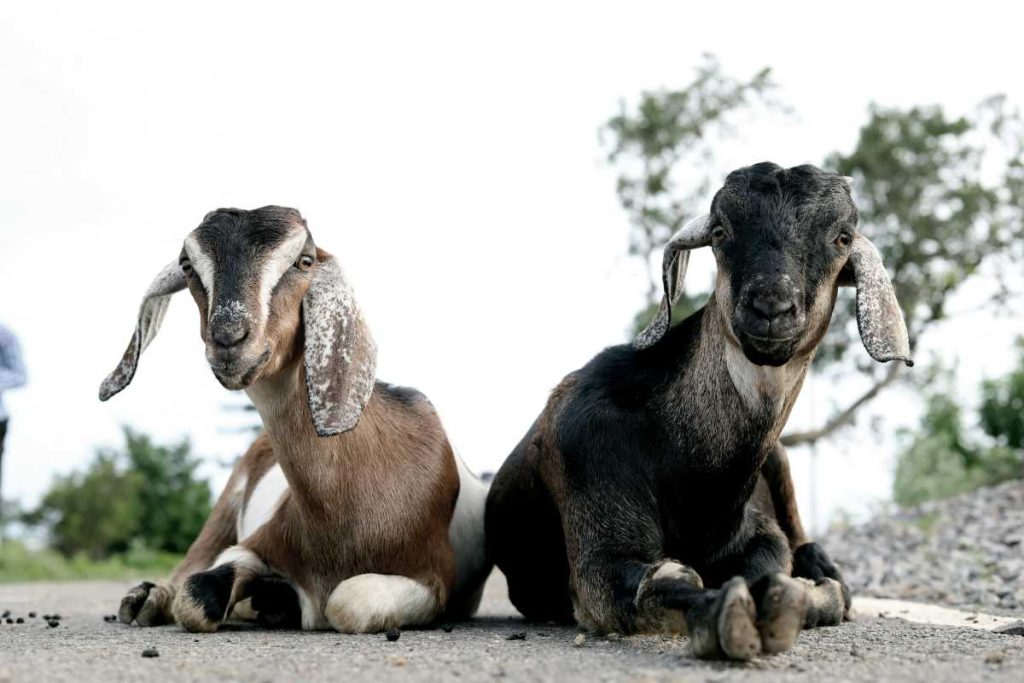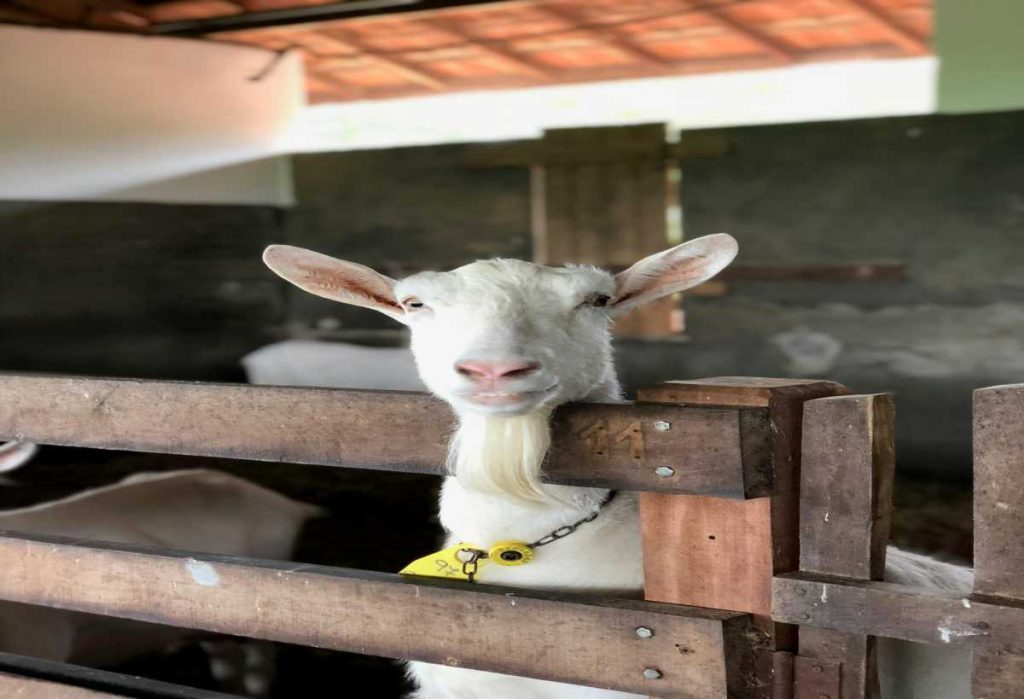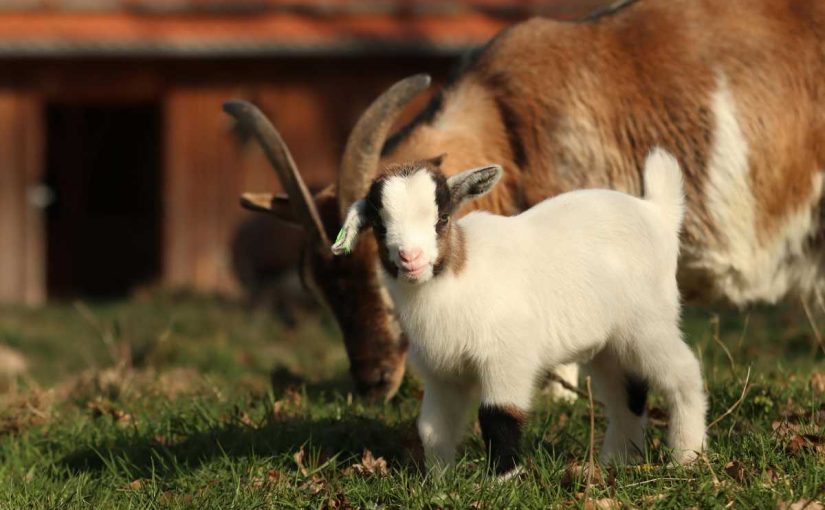In today’s fast-paced world, many city dwellers are exploring alternative ways of connecting with nature, supporting sustainable living, and providing fresh, home-grown food for their families. Urban farming, a practice that includes raising livestock, is becoming increasingly popular as people look for ways to enhance their quality of life. Among the livestock options, goats have gained considerable attention due to their size, ease of care, and the variety of products they provide. While raising goats in a rural setting is more common, urban and suburban areas have started to embrace these hardy creatures as a great addition to city living.
This blog will explore the 5 key benefits of raising goats in urban environments, highlighting the ways in which these animals can enhance city life while also supporting sustainable practices.
1. Sustainability and Environmentally Friendly Practices
One of the most compelling reasons to raise goats in a city environment is their contribution to sustainability. Goats are natural foragers and have a minimal environmental footprint compared to larger livestock. Their grazing habits can help reduce the need for chemical fertilizers and pesticides, which are often used in traditional farming practices.
Land Management: Goats are known for their ability to clear overgrown areas of grass, weeds, and unwanted vegetation. In an urban setting, this can be highly beneficial for maintaining vacant lots, community gardens, and even neglected urban spaces. Their natural grazing behavior helps control invasive plants without the need for chemical herbicides, making them an eco-friendly alternative to mechanical tools or chemical treatments.
Manure for Fertilization: Goat manure is an excellent organic fertilizer that is rich in nitrogen, phosphorus, and potassium. It can be used to enrich the soil in urban gardens or farms, promoting healthier plants without harming the environment. Unlike synthetic fertilizers, goat manure is biodegradable and does not contribute to pollution or soil degradation. Additionally, goat manure can be composted and turned into a valuable resource for city gardeners looking to grow their own food.
Reducing Carbon Footprint: Raising goats in urban areas can reduce the carbon footprint associated with transporting food. Instead of relying on meat, milk, and other products that need to be shipped from rural farms or other regions, city dwellers can produce these resources themselves, reducing reliance on large-scale, industrial agriculture. Goats are also highly efficient in terms of the feed-to-product ratio, meaning they produce more with less input, further reducing their environmental impact.
2. Education and Community Engagement

Urban farming and the inclusion of animals like goats can play a significant role in educating city dwellers about agriculture, animal husbandry, and sustainability. In densely populated urban areas, there is often a disconnect between people and where their food comes from. By raising goats in the city, residents can gain hands-on experience with farming practices and can teach others, including children, about animal care, food production, and sustainable living.
Educational Opportunities for Children: Urban farming can provide invaluable learning experiences for children. Being able to interact with goats teaches kids important lessons about responsibility, empathy, and the cycles of life. Kids who grow up on farms or in proximity to farm animals often develop a greater appreciation for animals and the environment, which can influence their attitudes and behaviors toward sustainability in the future. Schools or community centers can even set up educational programs or farm visits to raise awareness about the benefits of raising goats in urban areas.
Community Projects and Events: Raising goats can foster community engagement and provide opportunities for neighbors to collaborate on urban farm projects. Whether it’s working together to build a goat pen, organizing educational events, or hosting markets to sell goat-related products such as milk, cheese, and soap, urban farming can create a sense of camaraderie and shared responsibility. Such activities bring people together, strengthen community bonds, and provide local solutions to urban challenges, all while promoting a more sustainable lifestyle.
Promoting Local Agriculture: In an age where mass-produced food and industrial agriculture dominate, urban goat farming is an opportunity to reconnect with local food production. By raising goats for milk, cheese, and meat, urban residents can engage with agriculture in a way that directly benefits their communities. Selling locally produced goods also supports the local economy and reduces the need for imported products.
3. Health Benefits and Fresh, Nutritious Food
Raising goats in a city setting can lead to improved food security and provide families with fresh, nutritious food sources. Goats are versatile and can be raised for multiple purposes, such as dairy production, meat production, and even fiber, depending on the breed. The health benefits of these products are immense and can positively impact the well-being of city residents.
Fresh Milk and Cheese: Goat milk is rich in essential nutrients, such as vitamins A, D, and calcium. Many people find that goat milk is easier to digest than cow’s milk, particularly those with lactose intolerance. Additionally, goat milk is often used to make a variety of cheeses such as chèvre, feta, and goat’s milk yogurt, which can be enjoyed in a range of dishes. Raising goats in an urban setting allows families to access fresh, wholesome dairy products without the need to purchase them from stores, providing an affordable and healthy alternative.
Goat Meat (Chevon or Cabrito): Goat meat is lean and high in protein, making it a healthier alternative to traditional meats like beef and pork. It is also lower in fat and cholesterol, which can help improve overall heart health. Raising goats for meat can help families incorporate more nutrient-dense protein into their diets, especially in urban areas where access to fresh, locally raised meat can be limited.
Natural Fiber: Some goat breeds, such as Angora and Cashmere goats, produce valuable fibers that can be used to make soft, durable textiles. These fibers are in high demand for knitting and weaving projects, and they can be harvested sustainably with minimal impact on the goat’s health. Raising these types of goats in a city can provide a valuable resource for those interested in crafts or those looking to create eco-friendly clothing and accessories.
Access to Healthier Food Options: By raising goats, families can eliminate the middleman and access healthier, unprocessed foods. This is particularly valuable in areas where fresh food may not always be readily available, or where industrial food systems dominate. Raising goats ensures that families can eat fresh, hormone-free products, improving their overall health and reducing exposure to unhealthy additives and preservatives often found in commercially produced food.
4. Low Maintenance and Space-Efficient Livestock
Goats are well-known for being hardy and easy to care for, which makes them ideal for urban settings. Compared to larger livestock like cows and horses, goats are small, relatively low-maintenance animals that can thrive in smaller spaces, making them perfect for city environments.
Adaptability to Small Spaces: Goats require less space than many other types of livestock, which makes them a great choice for urban environments where land is often limited. Goats are adaptable and can live comfortably in small yards, rooftops, or community spaces. This makes them well-suited for suburban homes with small gardens, townhouses, or even shared city lots. As long as goats have enough room to graze, shelter to protect them from the elements, and a secure pen to keep them contained, they can be easily accommodated in an urban setting.
Minimal Care and Feeding Requirements: Goats are relatively easy to care for, particularly when compared to larger animals. They are hardy creatures that require minimal attention when it comes to shelter, food, and general care. In fact, goats are often independent and can be left to graze for much of the day. They are not as prone to illness as some other animals, and with proper diet and housing, they can thrive in urban environments. Their feeding needs are simple, and they will happily consume a variety of vegetation, including grass, weeds, and garden scraps, reducing the need for expensive animal feed.
Low Noise and Odor: Goats are generally quiet animals and do not create a lot of noise or odor. This makes them an ideal choice for city environments where noise pollution is a concern. While goats can make sounds, such as bleating, they are typically not as disruptive as other animals, such as dogs. Additionally, if their living area is kept clean, goats produce minimal odor, which is another important consideration in urban settings.
5. Economic Viability and Potential for Profit
Raising goats in the city can also be a financially viable option, with opportunities for urban farmers to generate income from their goats. With the increasing demand for local, sustainable products, there is a growing market for goat milk, meat, and fiber. For city dwellers looking to start their own urban farm, goats provide a low-cost entry point compared to other livestock.
Small-Scale Production: Goats are ideal for small-scale farming, allowing urban farmers to produce goods without the need for extensive land or infrastructure. By raising a small herd of goats, individuals can produce enough milk, cheese, and meat to meet their needs while also selling excess products to local markets, restaurants, or consumers who are seeking fresh, locally grown food.
Diversified Revenue Streams: Raising goats offers multiple ways to generate income. In addition to selling milk, cheese, and meat, goat-related products such as soap, wool, and leather can be sold to add value to the farm’s output. By diversifying their product offerings, urban goat farmers can maximize their earning potential and ensure a steady income stream.
Agricultural Grants and Support: Many cities and local governments provide grants, incentives, and other forms of support to encourage urban farming. These programs may include financial assistance, educational resources, and even subsidies for equipment. This makes raising goats in the city a more financially feasible option for many urban residents.
Conclusion
Raising goats in city environments offers numerous benefits, from promoting sustainability and reducing environmental impact to providing fresh, nutritious food and creating educational opportunities. Goats are low-maintenance, adaptable animals that can thrive in smaller urban spaces, making them an ideal choice for city dwellers interested in urban farming. Furthermore, goats offer diverse economic opportunities, contributing to local economies and reducing reliance on large-scale industrial agriculture.
As more and more people embrace urban farming, goats are likely to play an increasingly important role in shaping the future of sustainable, local food production in cities around the world. Whether for personal enjoyment, educational purposes, or economic reasons, raising goats in urban environments is an exciting and viable option for many city residents seeking to live a more sustainable, self-sufficient lifestyle.




